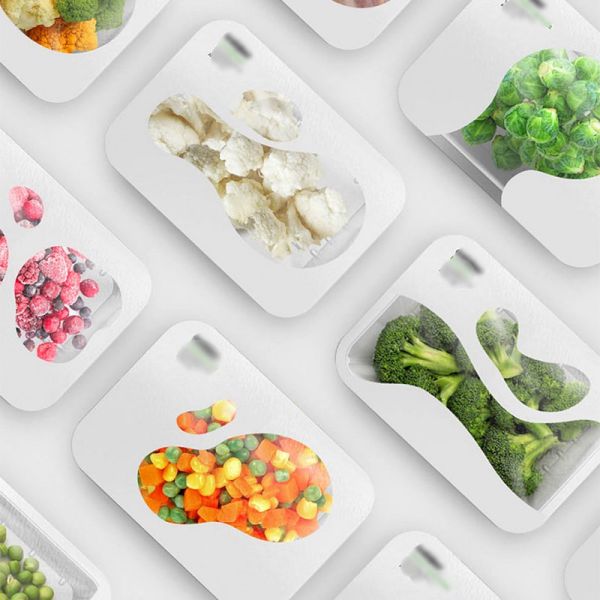- This topic is empty.
-
AuthorPosts
-
08/07/2025 at 15:59 #8088
In today's fast-paced world, where convenience and quality often go hand in hand, insulated food packaging has emerged as a game-changer in the food industry. Whether you're a busy professional packing a lunch for work, a food truck owner looking to serve fresh meals on the street, or a caterer ensuring dishes arrive in perfect condition, Sunkey insulated packaging offers a multitude of benefits that ensure food stays tasty, fresh, and safe.

1. Temperature Control: Locking in Freshness and Flavor
Preserving Hot and Cold Foods Alike
Insulated food packaging excels at maintaining optimal temperatures, whether you're keeping foods hot or cold. For hot meals, these containers utilize advanced materials like vacuum-insulated panels or foam insulation to minimize heat loss, ensuring that soups, stews, and other warm dishes stay piping hot until they're ready to be enjoyed. Conversely, for cold items such as salads, yogurts, and beverages, insulated packaging prevents external heat from penetrating, keeping contents chilled and refreshing. This temperature regulation is crucial for preserving the integrity of food, locking in flavors and nutrients that can degrade when exposed to temperature fluctuations.
Extending Shelf Life
By maintaining consistent temperatures, insulated packaging also helps extend the shelf life of food. Proper temperature control slows down bacterial growth and enzymatic activity, which can cause spoilage. This means less food waste and more opportunities for consumers to enjoy high-quality meals, even after extended periods of transportation or storage.
2. Environmental Impact: Sustainable Solutions for Our Planet
Reducing Single-Use Plastics
In an era where environmental consciousness is paramount, insulated food packaging offers sustainable alternatives to traditional single-use plastics. Many modern insulated containers are made from eco-friendly materials such as stainless steel, recycled plastics, and biodegradable options like bamboo fiber orPLA (polylactic acid). These materials reduce reliance on non-renewable resources and decrease plastic pollution, aligning with the growing trend towards circular economy principles.
Energy Efficiency and Carbon Footprint
Moreover, by maintaining food temperatures effectively, insulated packaging reduces the need for constant reheating or cooling, thereby lowering energy consumption. This contributes to decreased greenhouse gas emissions and a smaller carbon footprint, making it an attractive option for businesses seeking to minimize their environmental impact.
3. Practicality and Convenience: Enhancing Everyday Experiences
Versatile and User-Friendly Designs
Insulated food packaging comes in a variety of sizes, shapes, and configurations, catering to diverse needs. From compact, leak-proof containers perfect for individual meals to larger, stackable options for catering services, there's a solution for every scenario. Many designs feature ergonomic handles, secure latches, and transparent windows for easy monitoring, enhancing user convenience.
Ideal for On-the-Go Lifestyles
For the modern, on-the-go consumer, insulated packaging ensures that meals can be enjoyed anywhere, anytime. Whether you're hiking in the mountains, commuting to work, or attending a picnic in the park, these containers keep food at the desired temperature, making healthy eating accessible and enjoyable.
4. Boosting Business: Competitive Edge for Food Service Providers
Enhancing Customer Satisfaction
For food service providers, investing in insulated packaging can significantly enhance customer satisfaction. Delivering hot, fresh meals that meet or exceed expectations fosters loyalty and positive reviews, driving repeat business. This attention to detail communicates a commitment to quality that sets businesses apart in a competitive market.
Cost-Effective and Efficient Solutions
While initial investments in insulated packaging may be higher, the long-term benefits far outweigh the costs. Reduced food waste, lower energy consumption for reheating, and increased customer satisfaction contribute to higher profits and operational efficiency. Furthermore, many insulated containers are durable and reusable, reducing ongoing replacement costs.
In conclusion, insulated food packaging is not just a trend but a necessity in today's food industry. Its ability to preserve food quality, support environmental sustainability, enhance convenience, and boost business competitiveness makes it an invaluable asset. As consumers become more discerning and environmentally aware, businesses that prioritize these benefits will not only meet but exceed the expectations of their clientele. By embracing insulated packaging, Sunkey not only keeping food tasty but also paving the way for a more sustainable and efficient future in food service.
http://www.packagingbagmanufacturer.com
Sunkey packaging -
AuthorPosts
- You must be logged in to reply to this topic.